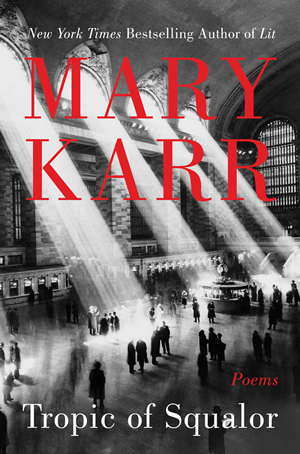Art Museum Announces Charlotte Bingham ’27 as 2025-26 Luise and Morton Kaish Fellow
The Syracuse University Art Museum has announced Charlotte Bingham ’27 as the 2025-26 Luise and Morton Kaish Fellow. Through the philanthropic gift of Syracuse University alumni and prominent artists Luise ’46, G’51 and Morton Kaish ’49, the Kaish Fellowship program was established in…



 “Tropic of Squalor” picks up where its predecessor, “Sinners Welcome” (HarperCollins, 2006), leaves off, with its irreverent brand of poetic faith. The first half of the book features poems originally from The New Yorker, Poetry, Parnassus and other literary fare. Covering a range of secular religiosity, they include poignant elegies to her father and fellow writers David Foster Wallace and Czeslaw Milosz. “These poems call us into our hard-won awareness of the divine, hiding in small moments that make us human,” says Karr, a former weekly poetry editor for The Washington Post.
“Tropic of Squalor” picks up where its predecessor, “Sinners Welcome” (HarperCollins, 2006), leaves off, with its irreverent brand of poetic faith. The first half of the book features poems originally from The New Yorker, Poetry, Parnassus and other literary fare. Covering a range of secular religiosity, they include poignant elegies to her father and fellow writers David Foster Wallace and Czeslaw Milosz. “These poems call us into our hard-won awareness of the divine, hiding in small moments that make us human,” says Karr, a former weekly poetry editor for The Washington Post.
